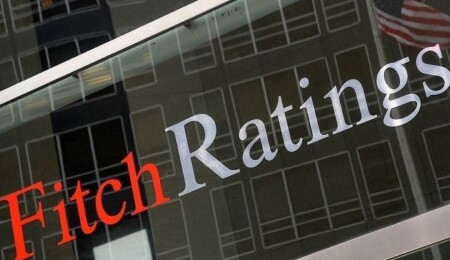Fitch Lifts 2025 Global Growth Forecast to 2.4 Per Cent

Fitch Ratings has slightly upgraded its forecast for global growth in 2025 to 2.4 per cent, an increase of 0.2 percentage points compared with its projections in June.

The revision is based on better-than-expected incoming data for the second quarter of 2025.
In its new report on global growth for 2026, Fitch expects an increase of 0.1 percentage points, forecasting 2.3 per cent.
However, the US credit rating agency said there are now signs of an underlying slowdown in the United States economy.
It explained that these signs are visible in hard economic data, while the positive surprises in eurozone growth partly reflect the imposition of tariffs on the United States.
The agency said eurozone exports are unlikely to maintain the pace seen in the first half of 2025.
With the recovery in consumer spending weakening, Fitch does not expect eurozone GDP to expand in the second half of 2025.
It noted, however, that fiscal loosening in Germany will provide stronger support to eurozone growth next year.
Fitch continues to expect global GDP to slow significantly this year.
According to the agency, global growth is now projected at 2.4 per cent in 2025, up by 0.2 percentage points from June’s estimate, but down sharply from the 2.9 per cent forecast last year.
The forecast for China’s growth has been raised to 4.7 per cent from 4.2 per cent.
The eurozone forecast is upgraded to 1.1 per cent from 0.8 per cent.
The US forecast is raised slightly to 1.6 per cent from 1.5 per cent.
Fitch said uncertainty over US tariff policy has diminished following a series of announcements.
Its latest estimate for the US effective tariff rate stands at 16 per cent, very close to the level calculated in June.
It added that Mexico and Canada face lower effective tariff rates, while Europe’s is also slightly lower, but this is offset by higher-than-expected rates in Asia, excluding China.
“Greater clarity on US tariff hikes does not change the fact that they are huge and will reduce global growth,” he said, Brian Coulton, chief economist at Fitch.
“Evidence of slowing growth in the US is now showing up in hard economic data and is no longer only in sentiment surveys,” he added.
“The pass-through of this large increase in the effective tariff rate to US inflation has so far been moderate,” he said.
“There is evidence in the US national accounts that the tariff shock has been absorbed partly by downward pressure on corporate profits, but we expect the pass-through to accelerate later this year,” he added.
Higher inflation will limit real wage growth and negatively affect consumer spending in the United States, which has already slowed significantly in 2025, the agency said.
It added that job creation has also slowed considerably, reflecting in part the impact of migration pressures on labour force growth.
“A widening fiscal deficit should support demand in 2026, but we still expect the average annual GDP growth rate in the US to remain well below trend, at 1.6 per cent,” they added.
China’s export growth has held up despite the shock of US tariffs, Fitch said.
“The depreciation of the nominal trade-weighted exchange rate and falling export prices have helped redirect sales abroad,” they added.
It noted that fiscal easing is supporting growth, but private domestic demand is weakening, and deflation is becoming more entrenched.
“The weakening labour market in the United States should persuade the Federal Reserve to cut interest rates more quickly than previously expected,” they said.
Fitch expects rate cuts of 25 basis points in September and December, followed by three more cuts in 2026.
“Another cut from the European Central Bank now seems unlikely,” they added.
“We see little prospect of a recovery in the US dollar after its broad depreciation in the first half of 2025,” they added.


Comments
Attention!
Sending all kinds of financial, legal, criminal, administrative responsibility content arising from illegal, threatening, disturbing, insulting and abusive, humiliating, humiliating, vulgar, obscene, immoral, damaging personal rights or similar content. It belongs to the Member / Members.